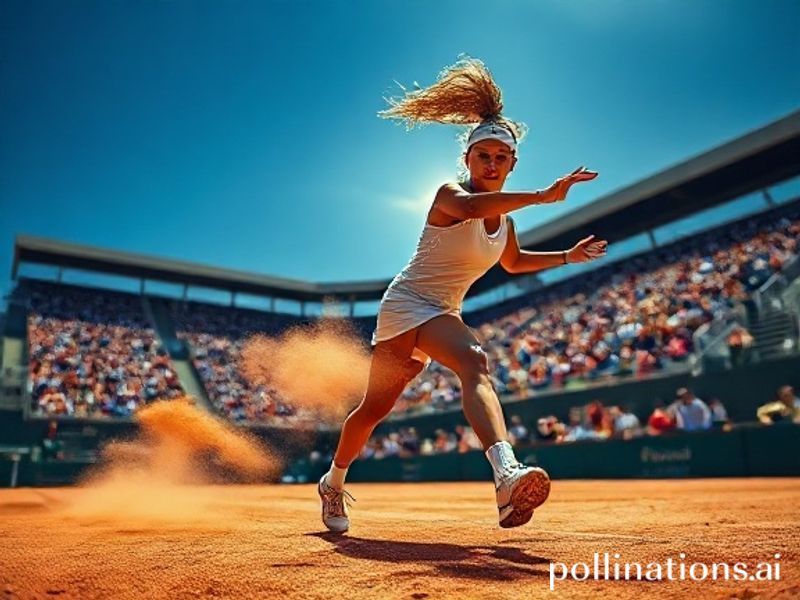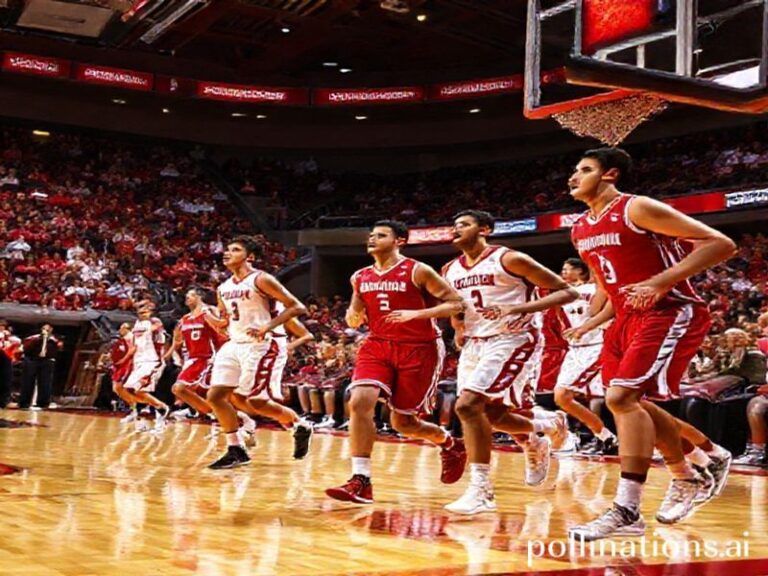Veronika Kudermetova: How One Racket Navigates Sanctions, Sponsors, and the Eternal Jet Lag of Modern Sport
Veronika Kudermetova and the Beautiful, Pointless Resilience of the Tour
By Dave’s Locker Global Sports Correspondent
Somewhere over the Indian Ocean, halfway between a Dubai duty-free lounge and the next time zone she must pretend to inhabit, Veronika Kudermetova is probably trying to remember what month it is. Not that it matters; the WTA calendar is a Möbius strip designed by caffeinated consultants, and every city looks like the last once you’ve sprinted through its airport in compression socks. Yet here she is—Russian-born, Dubai-based, tour-hardened—still swinging a 300-gram racket at fate while the rest of us argue on Twitter about sanctions, soft-power optics, and the price of jet fuel.
From a purely geopolitical standpoint, Kudermetova is an accidental diplomat. Russia’s athletes currently compete under flags that resemble optometrist’s eye charts—neutral banners, neutral anthems, neutral everything except the nuclear-level grunting. The Kremlin would love to weaponize her results; Western broadcasters would love to forget she exists. She, meanwhile, would love a nap. That tension—between propaganda value and personal exhaustion—is the true surface she plays on. The tennis court is just where they keep the microphones.
This season she’s cracked the top ten, a feat roughly as statistically likely as finding a functioning ATM in Belgrade at 2 a.m. The ranking points are denominated in U.S. dollars, banked in offshore accounts, and converted into whatever currency won’t crater before the next tournament. Sponsors hedge accordingly: Chinese water companies, Qatari telecoms, a German carmaker that recently discovered “sportwashing” isn’t just for marathoners. Every sticker on her racket frame is a tiny non-fungible treaty.
To appreciate Kudermetova’s relevance beyond the baseline, consider the collateral damage of modern fandom. Viewers in Cincinnati grumble when she double-faults at 3 a.m. their time; viewers in Vladivostok cheer while eating breakfast. Both groups believe they own a piece of her, yet neither could pick her out of a lineup without the visor. This is globalization’s greatest magic trick: turning a private struggle into communal property, then charging admission.
Her game itself is a metaphor nobody asked for—flat, merciless groundstrokes that evoke supply-chain disruptions. She hits corners the way container ships miss berths: suddenly, catastrophically, efficiently. Coaches call it “taking the ball early”; logistics experts call it “just-in-time inventory.” Either way, someone ends up sprawled on the asphalt wondering how the hell it arrived so fast.
Meanwhile, the women’s tour lurches through existential crises like a charter pilot who’s lost the manual. Prize-money parity remains a polite fiction, China is in or out depending on the week, and Wimbledon still insists on seeding players like it’s 1895. Kudermetova navigates this chaos with the dead-eyed calm of someone who’s read the fine print on every nondisclosure agreement. She knows the draw can collapse faster than the ruble in April, so she keeps her head down and her first-serve percentage up.
There’s something almost heroic in the futility of it all—like Sisyphus, but with better endorsements. Each tournament is a fresh boulder, each airport another hill. The commentators call it “grit”; the philosophers call it “absurd.” Dave’s Locker calls it Tuesday.
Conclusion
In the end, Veronika Kudermetova is less a tennis player than a stress-test for our collective attention span. She totes her own water bottles because hydration is non-negotiable when you’re simultaneously representing a nation, a brand, and the vague hope that sports can transcend politics—until, of course, they can’t. Her victories won’t redraw any borders, but they do remind us that even in a fractured world, someone is still keeping score. And while the scoreboard can’t solve climate change or de-escalate missile crises, it does provide the comforting illusion that somebody, somewhere, is winning at something. Which, these days, counts as optimism. Barely.







